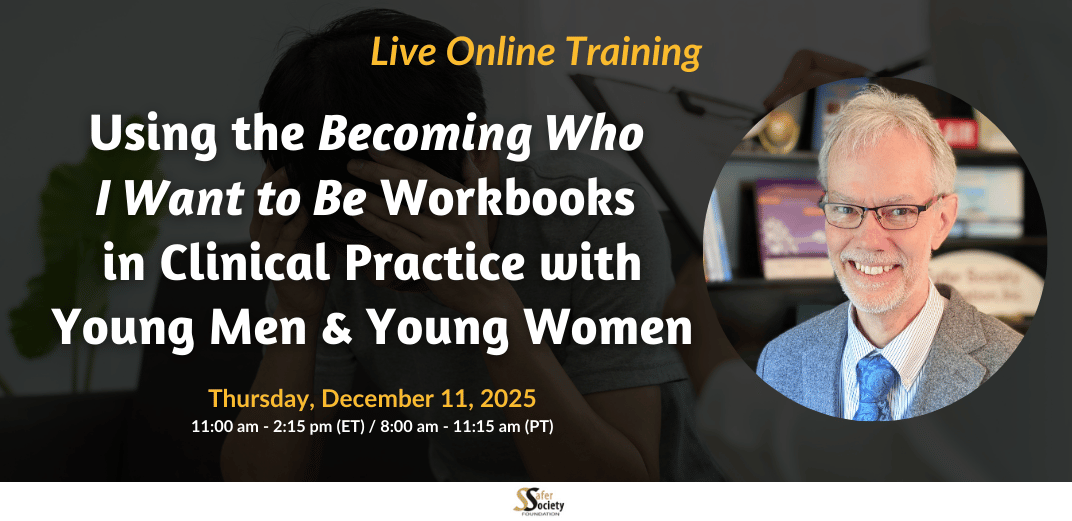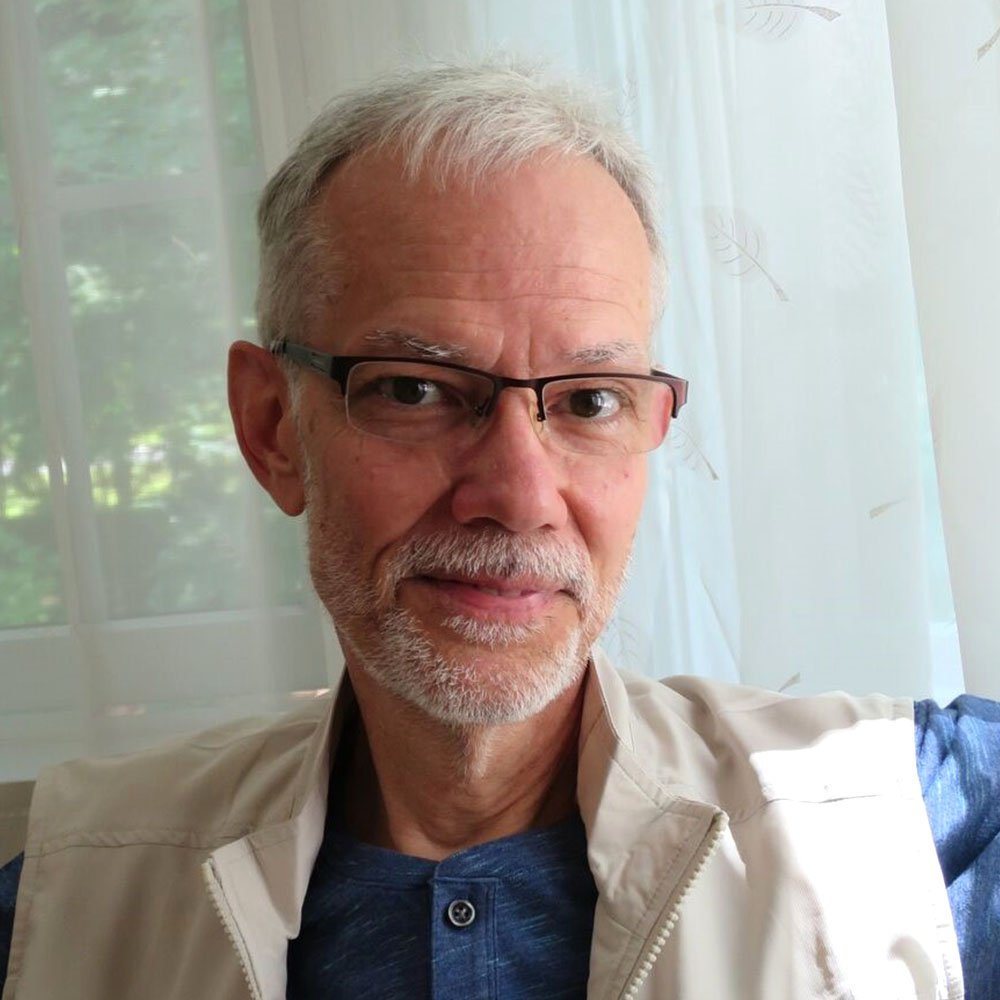
Using the Becoming Who I Want to Be Workbooks in Clinical Practice with Young Men and Young Women
Please note: This training is not eligible for CE credits.
Each registration includes a certificate for attendance. To be eligible for a certificate, you must attend the entire live training and complete an evaluation form within 24 hours following the live event.
 The Becoming Who I Want to Be workbooks for young men and women were designed for professionals working with youths with problematic behaviors toward others. Designed to be approachable and interactive, the workbooks engage clients whose adverse childhood experiences and problem behaviors have caused them to fall behind academically, socially, and emotionally. Based on the Good Lives Model (GLM), the workbook translates complex theory into practical strategies for treatment settings.
The Becoming Who I Want to Be workbooks for young men and women were designed for professionals working with youths with problematic behaviors toward others. Designed to be approachable and interactive, the workbooks engage clients whose adverse childhood experiences and problem behaviors have caused them to fall behind academically, socially, and emotionally. Based on the Good Lives Model (GLM), the workbook translates complex theory into practical strategies for treatment settings.
This training shows participants how to effectively integrate the workbooks into their therapeutic practice. Presenter and author David Prescott begins the training by reviewing the core principles of the GLM. He then offers ideas for how clinicians and counselors can use each section. Central to this training is its focus on dovetailing the GLM and these workbooks with Motivational Interviewing skills and the principles of Trauma-Informed Care, ensuring that intervention is not only effective but also client-centered and deeply supportive.
The GLM is a strengths-based rehabilitation practice framework that augments the risk, need, and responsivity principles of effective correctional intervention by focusing on assisting clients to develop and implement meaningful life plans incompatible with future offending. Although originally developed as a rehabilitation framework for use with adults who have harmed others, this training spotlights how the GLM—when applied thoughtfully—becomes a powerful model for working with adolescents.
Key topics discussed during this training include:
- Core Principles of the Good Lives Model
- The therapist’s role in using the Becoming Who I Want to Be workbook
- How to use the workbook in both group and individual treatment
- Translating the GLM’s ten “primary human goods” into the eight “good life goals”
- Ways to help clients overcome obstacles to building a positive
Beyond workbook strategies, this training closely examines many individual GLM tenets like approach goals and primary human goods, with special attention to the role of family involvement. It also explores how harmful behaviors often emerge from developmental adversity and from obstacles that interfere with pursuing specific goals that are common to all human beings.
After completing this training, participants have a clear, actionable framework for using the workbooks to help young people develop healthier identities, build meaningful futures, and move toward long-term change.
Safer Society Press published two workbooks in the Becoming Who I Want to Be series. Please click the title below to view the workbooks in our webstore:
- Becoming Who I Want to Be: A Good Lives Model Workbook for Young Men, 2nd Edition
- Becoming Who I Want to Be: A Good Lives Model Workbook for Young Women
Note: We recognize that gender can play dramatically different roles in clients’ lives. As a result, we recommend that each professional, in consultation with their individual clients, determine which workbook is a better fit for a given person.
Interactive Follow-Up Meeting
Attendees are invited to join an open discussion 15 minutes following the end of the training, where you can engage with fellow attendees by turning on your camera and microphone. This is an opportunity to share your experiences and contribute to a meaningful exchange of ideas. Time will be allocated to address questions or insights from the training. Please note that attendance is optional and will not affect your eligibility for a training certificate.
1) Explain the core principles of the Good Lives Model (GLM) and how they apply to work with adolescents who have experienced adversity and engaged in problematic behaviors.
2) Demonstrate how to effectively integrate the Becoming Who I Want to Be workbooks into both individual and group therapeutic settings.
3) Apply Motivational Interviewing skills and Trauma-Informed Care principles to enhance the use of the GLM and the workbooks in treatment.
4) Identify common obstacles youths face in achieving their “good life goals” and describe strategies to help them build healthier identities and positive life plans.
Audience
This training is for professionals working with young people who have experienced complex trauma, as well as young people who have perpetrated abuse. Professionals who will benefit from this training include social workers, psychologists, clinical counselors, and interested paraprofessionals.
Content Level
Cancellations
Who's Presenting

David Prescott, LICSW, ATSA-F
A mental health practitioner of 40 years, David Prescott is the Director of the Safer Society Continuing Education Center. He is the author and editor of 25 books in the areas of understanding and improving services to at-risk clients. He is best known for his work in the areas of understanding, assessing, and treating sexual violence and trauma. Mr. Prescott is the recipient of the 2014 Distinguished Contribution award from the Association for the Treatment and Prevention of Sexual Abuse (ATSA), the 2018 recipient of the National Adolescent Perpetration Network’s C. Henry Kempe Lifetime Achievement award, and the 2022 recipient of the Fay Honey Knopp Award from the New York State Alliance for the Prevention of Sexual Abuse and New York State ATSA. He also served as ATSA President in 2008-09. Mr. Prescott currently trains and lectures around the world. His published work has been translated into Japanese, Korean, German, French, Polish, and Southern Tutchone. He has served on the editorial boards of four scholarly journals.
